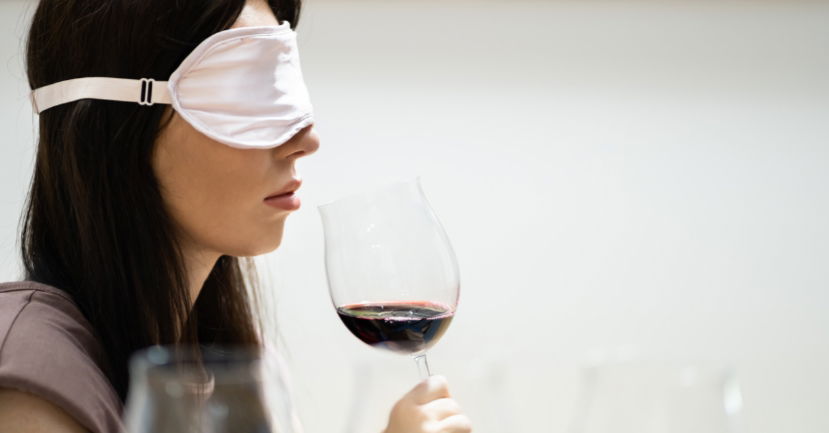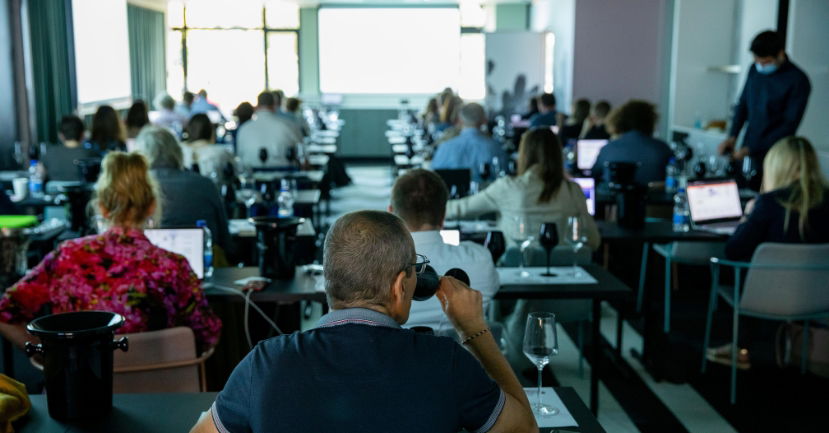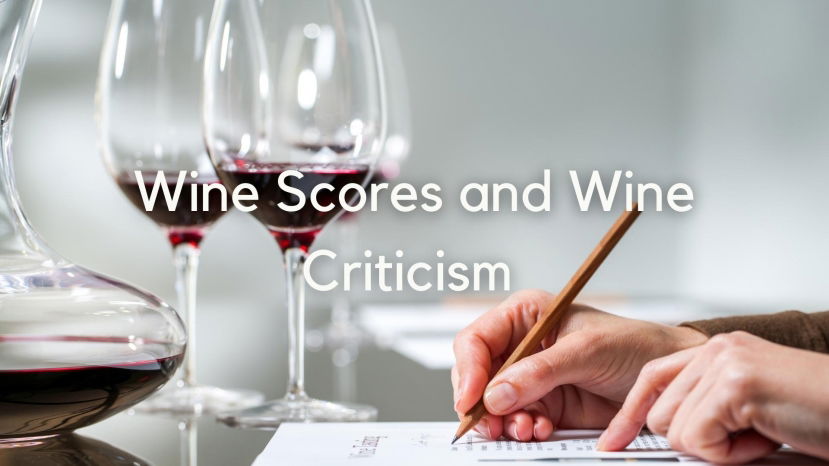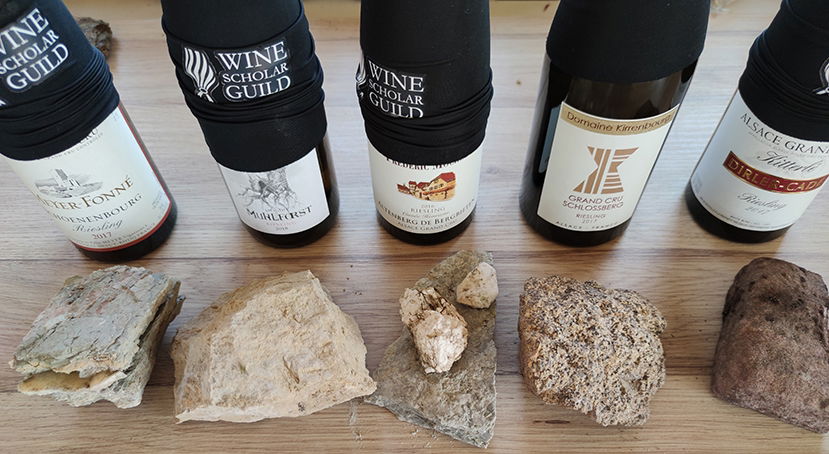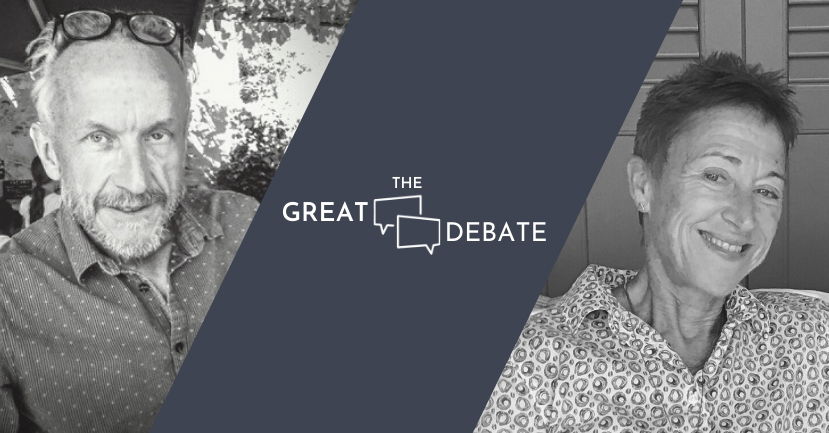BLOG
Wine Education & Careers
Joshua Dunning Wine Education & Careers
The Etruscans were the first to produce wine in northern Italy; beginning with wild varieties, they cultivated vines in Piedmont centuries before the Romans arrived. Nevertheless, it was the Romans who advanced commercial winemaking, significantly increasing the area under vine and using props,...
Rick Fisher Wine Education & Careers
From April 16-21, 2023, Wine Scholar Guild will land on the shores of southern Spain to host a special session of our internationally-recognized Spanish Wine Scholar® study and certification program in the beautiful coastal town of Málaga. If the spectacular weather and roughly 112 miles/180...
Andrew Triska Wine Education & Careers
On a blistering June day, my suitcase rattling over the hot cobblestones, I made my way by through the village of Amboise in the Loire Valley, where my tour with the Wine Scholar Guild was about to begin. That night, in an 18th century hotel decorated in a style my spouse describes as “manic...
Scott Wren, FWS Wine Education & Careers
In Zen, there’s something called "Beginner’s Mind". It’s a state of mind where you aren’t hemmed in by your judgements. You are able to see the world fresh--without pre-conceptions. That’s an apt description of how I was feeling as I began a weeklong deep-dive into Bordeaux with twenty Wine...
Anne Bilczuk Wine Education & Careers
Earlier this year, I embarked on the French Wine Scholar (FWS) program; version 7 being the latest update to this ever-popular certification offered by Wine Scholar Guild to wine enthusiasts and professionals alike. Here are my top study tips for passing the French Wine Scholar program!
Gabriel Lepousez Wine Education & Careers
This article is the first of an upcoming series by French neuroscientist Gabriel Lepousez. Gabriel is part of the Scientific Committee formed by WSG in the context of its "Architecture of Taste Research Project". He has also presented a fascinating segment on "The Neuroscience of Wine Tasting" as...
Julien Camus Wine Education & Careers
On the 6th of September 2021, Wine Scholar Guild hosted the first large-scale blind-tasting panel as part of its recently announced The Architecture of Taste Research Project. Hosted at the Bristol Hotel in Colmar, Alsace, this panel tasting launched WSG’s research on the tactile and geosensorial...
Kevin Day Wine Education & Careers
It is a regular occurrence, even for the most accomplished wine aficionado: a loss of words to describe exactly what’s going on in the glass. Try as we might, the language of wine will always be a tricky landscape to navigate. But, as educators and students of wine, it is a necessity. Whether...
Julien Camus Wine Education & Careers
Is a wine horizontal or vertical? Square or round? Hollow or dense? Relaxed or tensed? Grainy or smooth? This is a small sample of GeoSensorial Tasting vocabulary — a method that seeks to empower the taster to feel, interpret and give voice to wines of place. By focusing on mouthfeel and...
Pierre Freyermuth Ripeness and Balance with Andrew Jefford and Julia Harding MW
KD: Let’s zero in on alcohol, because — unlike pH or tannin — it is a data-point on every wine label, and one of the only technical clues on a wine label that can offer insight into the balance of the product. What can consumers and wine students glean from reading this number on the label?...
Pierre Freyermuth Ripeness and Balance with Andrew Jefford and Julia Harding MW
KD: One of the key words we hear a lot about in the wine industry — both from wine professionals and winemakers — is a desire for “freshness” in a wine. It is a rather nebulous term (and hard to argue: who doesn’t want freshness?) but is there something to it? Have wine styles shifted toward more...
Pierre Freyermuth Ripeness and Balance with Andrew Jefford and Julia Harding MW
KD: I want to circle back to this issue of personal taste, Julia. Do you feel that writers and educators have an obligation to at least disclose these personal taste sensitivities to their readers or students, so that descriptors of wine are seen through a lens of experience instead of something...
Pierre Freyermuth Ripeness and Balance with Andrew Jefford and Julia Harding MW
KD: Let’s shift gears a bit. I can see how a consumer or new student of wine could easily confuse “moderate” or “medium” elements in a wine as “balance.” I know I struggled with that early on! But certainly a high-tannin or high-acidity wine, or a low-alcohol or high-alcohol wine, could still be...
Pierre Freyermuth Ripeness and Balance with Andrew Jefford and Julia Harding MW
KD: The fulcrum analogy is a perfect visualization of it, Julia. Thank you. On to our last topic. As wine writers, we always get a front-row seat to the generational battle over ripeness, and in the age of climate change, that battle has become even more accentuated. I think of a recent trip to...
Pierre Freyermuth Ripeness and Balance with Andrew Jefford and Julia Harding MW
KD: So much of this conversation — balance, freshness, alcohol content, etc. — stems from when the grapes are harvested. My question has to do with ripeness, because the ultimate outcome of a wine’s composition often stems from when and how the winemaker harvests the grapes. However, it means...
Pierre Freyermuth Ripeness and Balance with Andrew Jefford and Julia Harding MW
KD: Andrew, how do you discern balance when you are tasting wines? Do you have any tips? How much of it is a feeling? AJ: The first thing to say here is that I strongly believe that the key to finding and understanding balance in a wine becomes apparent as you drink a wine, rather than when you...
Pierre Freyermuth Ripeness and Balance with Andrew Jefford and Julia Harding MW
KD: You touched upon this a moment ago, Andrew, but currently, lower alcohol wines are in vogue within many circles of the wine industry, and among consumers. Within other circles, so-called “Parker” wines — a style predicated on boldness, richness and amplified tones — remain the driving force....
Pierre Freyermuth Ripeness and Balance with Andrew Jefford and Julia Harding MW
KD: I want to get both of your opinions on this next question: the elements that help preserve wine long-term — for example, acidity, tannins, and alcohol — are also the ones we discuss in terms of balance. Wines that age well are always balanced, but not all balanced wines can age, correct?...
Kevin Day Wine Education & Careers
Few, if any, moments in wine are more dramatic than when a producer decides it is time to pick fruit. Whether they rely upon a Brix reading, a visual cue from the grape seeds, or the finely tuned instrument of their own palate, making the call to harvest a plot of grapes is a decision fraught with...
Pierre Freyermuth What is the Future of Appellations? with Andrew Jefford and Robert Joseph
KD: Hypothetically, what would the wine world look today if it weren’t for appellations? Would the concept of terroir even be a discussion point without them? And do appellations create unrealistic expectations about terroir? AJ: Terroir would exist as a concept because there would be a small set...






